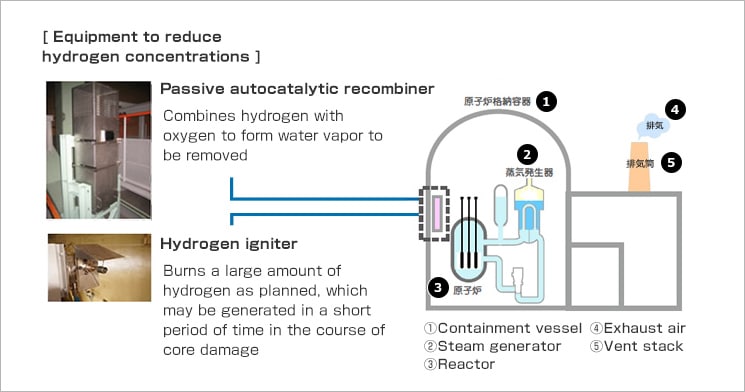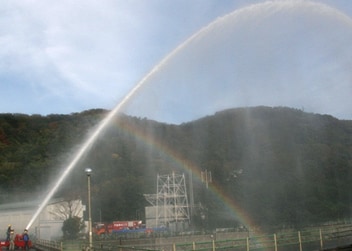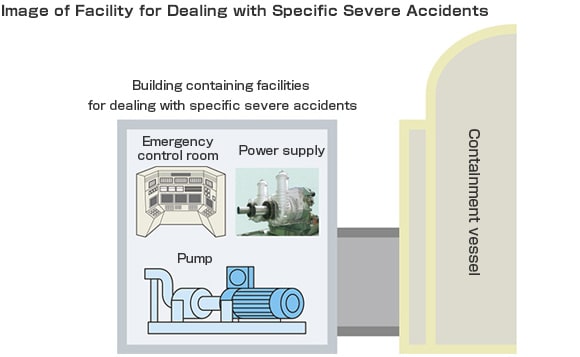Nuclear Power Information
Preparation for Potential Severe Accidents
 Countermeasures against Severe Accidents
Countermeasures against Severe Accidents
Our Nuclear Power Stations are taking every possible measure in case of a severe accident which may result in core damage.
Measures to Prevent Containment Vessel Failure and Hydrogen Explosion
We are installing the filtered ventilation systems, which can remove a large amount of radioactive materials through 2 types of filters before releasing it to the environment, in order to reduce the containment vessel pressure in the event of an abnormal increase in the containment pressure.
Beside the filtered ventilation system, we have installed passive autocatalytic recombiners, which combine hydrogen with oxygen to form water vapor to be removed, and hydrogen igniters, which are able to burn a great amount of hydrogen as planned, which may be generated in a short period of time in the course of core damage.

Deployment of Rubble Removal Heavy Machines
We have deployed heavy machines which are used to remove rubbles generated as a result of tsunami to assure the access for personnel and vehicles.

Arrangement of Emergence Response Center
We have constructed the emergency response center according to the new regulatory requirements.
We are also building the seismic isolated office building.
Measures to Prevent Release of Radioactive Materials

Besides the assurance of power supply and cooling functions to prepare for potential severe accidents, our nuclear power stations are also taking various measures in case of containment vessel failure.
During the accident at Fukushima Daiichi Power Station, hydrogen leaked inside the reactor building after core damage, which resulted in hydrogen explosion leading to a release of radioactive materials to the environment.
In light of the experience at Fukushima Daiichi, we have deployed the water cannon, which is able to discharge 20,000ℓ water per minute with high pressure. The water cannon will directly discharge water over damaged sections to mitigate radioactive release in case of a containment vessel failure.
We also installed the "silt fence", which is a curtain hanged under water, to mitigate the diffusion of contaminated water in case of a release of radioactive water into the ocean.
Countermeasures against Intentional Aircraft Crash
We have a plan to install the "facility for dealing with specific severe accidents" as the countermeasure against an intentional aircraft crash, which may cause damage to the core cooling facilities, resulting in significant damage to the core.





